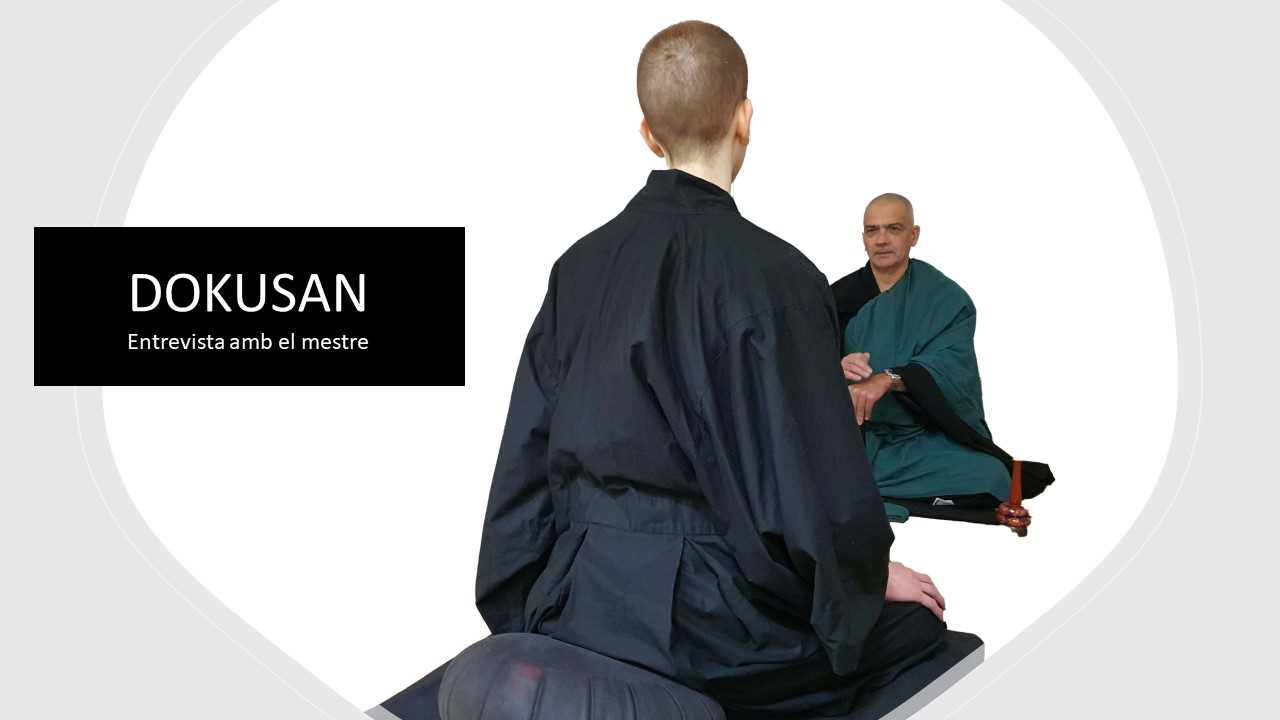Dokusan: The Private Meeting with a Zen Master
In Zen practice, dokusan interview is a private encounter between a student and a Zen master. During this interview, the student has the opportunity to present their questions, doubts, or experiences directly to the master. This face-to-face interaction is a fundamental part of Zen practice, providing the practitioner with personalized guidance and direct feedback.
Questions for the Master
Dokusan offers an opportunity to receive specific instructions on meditation, resolve doubts about practice, and deepen one’s understanding of the Dharma teachings. Generally, the student sits in front of the master and presents their questions or concerns in an intimate and confidential dialogue.
Zen Ritual
There is a traditional form of practicing dokusan, where the master waits in an adjoining room for the student’s visit. A specific ritual takes place between the master and disciple during this visit. Both, seated in zazen and facing each other, engage in an intimate and sincere dialogue, from heart to heart.
Dokusan interview in Zen Ritual
During Mountain retreats in Lluçà and in urban retreats in Barcelona, we have the opportunity to practice dokusan with the traditional ritual during the second morning zazen session. It is advisable to meet with the master frequently to strengthen our connection with Zen practice.
Alternative Non-Formal Interview
If you are unable to participate in the urban retreat to engage in this traditional interview, there is also the possibility of having a more informal interview with the master, either in person at the temple or online via Zoom. This is equally an occasion to share with the master the current state of your practice.
Book your Dokusan interview:
Interviews with the Master following the formal ritual of Dokusan interview are held at the Zen Kannon Meditation Center and during the Zen meditation retreats in Lluçà (Lluçanès)

